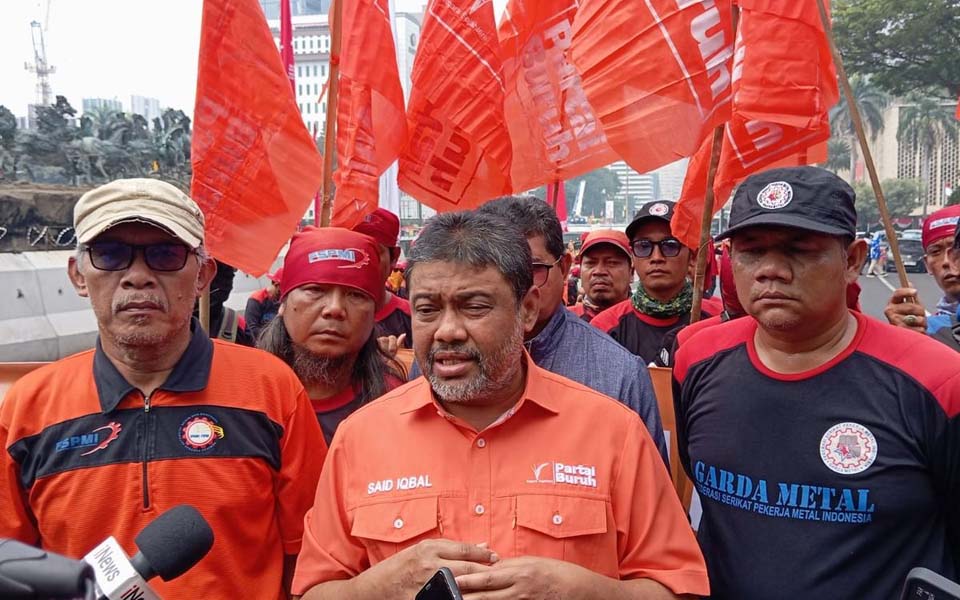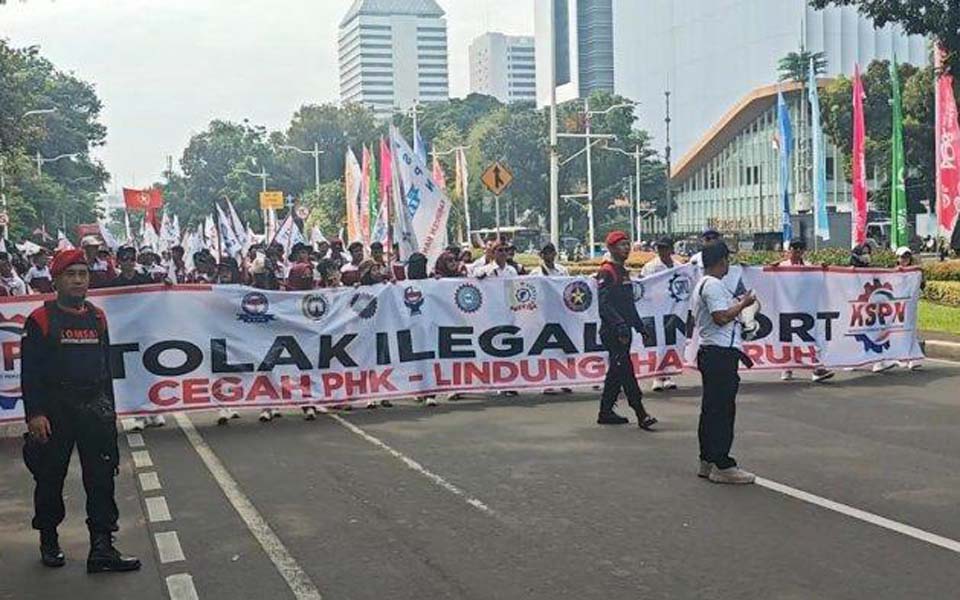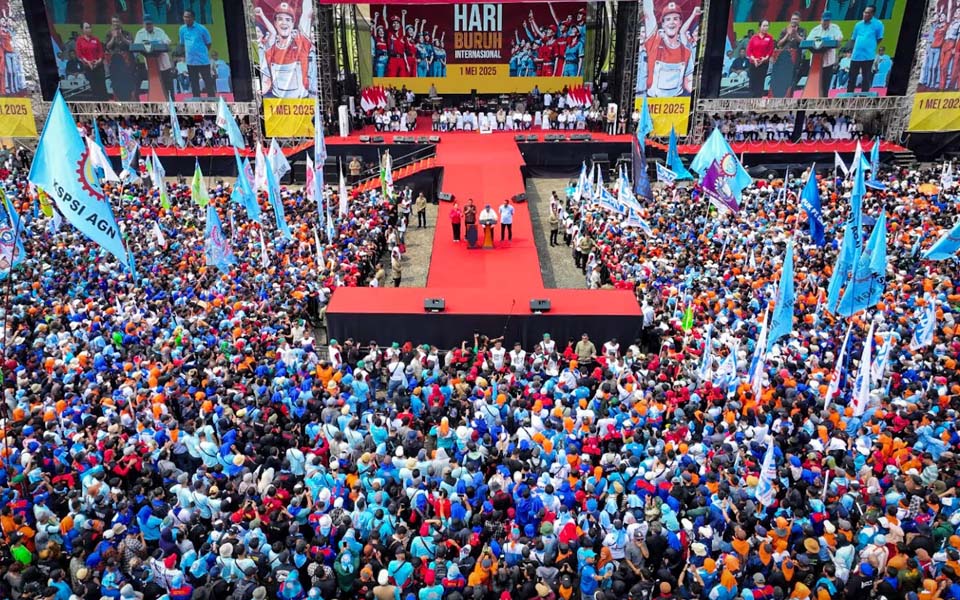Achmad Nasrudin Yahya, Jakarta – Three trade union confederations have agreed to revive the Indonesian Trade Union Council (MPBI) to fight the Draft Omnibus Law on Job Creation.
The three confederations are the Confederation of the All-Indonesian Workers Union (KSPSI), the Confederation of Prosperity Labour Unions (KSBSI) and the Confederation of Indonesian Trade Unions (KSPI).
They have agreed to work together to fight the concept of simplifying regulations though the Omnibus Law which is being touted by the government.
“(We) have put aside individual egos and interests, put aside individual flags, what there is, is just one, for the interests of Indonesian workers”, said KSPSI President Andi Gani Nena Wea during a press conference at the Puri Denpasar Hotel in South Jakarta on February 28.
The revival of the MPBI is quite surprising bearing in mind that the MPBI initiative several years ago has stagnated. Moreover the three trade union confederations held different political positions during the 2019 presidential election.
The KSPSI and KSBSI gave their support to the presidential ticket of then incumbent President Joko “Jokowi” Widodo and vice presidential candidate Maruf Amin while the KSPI decided to support the rival ticket of Prabowo Subianto and Sandiaga Uno.
The MPBI was established on May 1, 2012 at a declaration attended by 100,000 workers at the Bung Karno Sports Stadium. The declaration became the largest May Day celebration in Asia.
Conversely, it signals the development of a larger labour movement than in 2012.
Wea revealed that the MPBI will hold the largest demonstrations in Indonesia’s history if the government does not provide space for dialogue with workers on the draft law.
Nevertheless, Wea guaranteed that the movement will not be a political movement seeking to unseat the Widodo administration. “If there are parties, political figures which say it’s a political movement, then we firmly deny this”, said Wea.
KSPI President Said Iqbal meanwhile stated that the revival of the MPBI is not just a fantasy. He said that the MPBI’s revival as a national labour movement is an indication that it will be huge movement.
Moreover, the union of the three largest trade union confederations will be accompanied by labour movements different parts of the county to jointly oppose the Omnibus Law on Job Creation.
It will also serve as a warning for the government not to ignore workers’ wishes.
“If they (the government) ignore the MPBI, this would simply be waiting for an upheaval of a huge magnitude, because the vibrations already exist in several regions”, he said.
“If seen at the national [level] the magnitude is strong, a symbol of national unity, the magnitude will be strong”, asserted Iqbal.
KSBSI President Elly Rosita Silaban said that Wea and Iqbal were the initiators of the MPBI’s revival. Silaban said she appreciated the move by the two trade union leaders to revive the MPBI.
“I hadn’t ever thought about reactivating it. My disquiet over the last week was that if indeed we have the same goals and demands, why don’t we just unite”, said Silaban.
Silaban admitted that she had not given much thought to who would be suited to lead the MPBI after its revival. The most important thing, she said, was that workers unit to fight together.
“Because in the end we are aware that it (the Omnibus Law on Job Creation) is worse than anything we have previously experienced”, explained Silaban.
There at least nine specific reasons why these trade unions oppose the Omnibus law, namely the abolition of minimum wages, the loss of severance pay and the unrestricted use of outsourcing in all types of professions with no time limit.
Then exploitative working hours, the unlimited use of contract employees, the use of foreign workers and making it easy to sack workers.
In addition to this, the law would result in the loss of welfare benefits for workers, particularly healthcare and pensions, as well as removing sanctions for companies which violate labour laws.
[Translated by James Balowski. The original title of the article was “Tiga Serikat Buruh Sepakat Bersatu Lawan Omnibus Law RUU Cipta Kerja”.]















